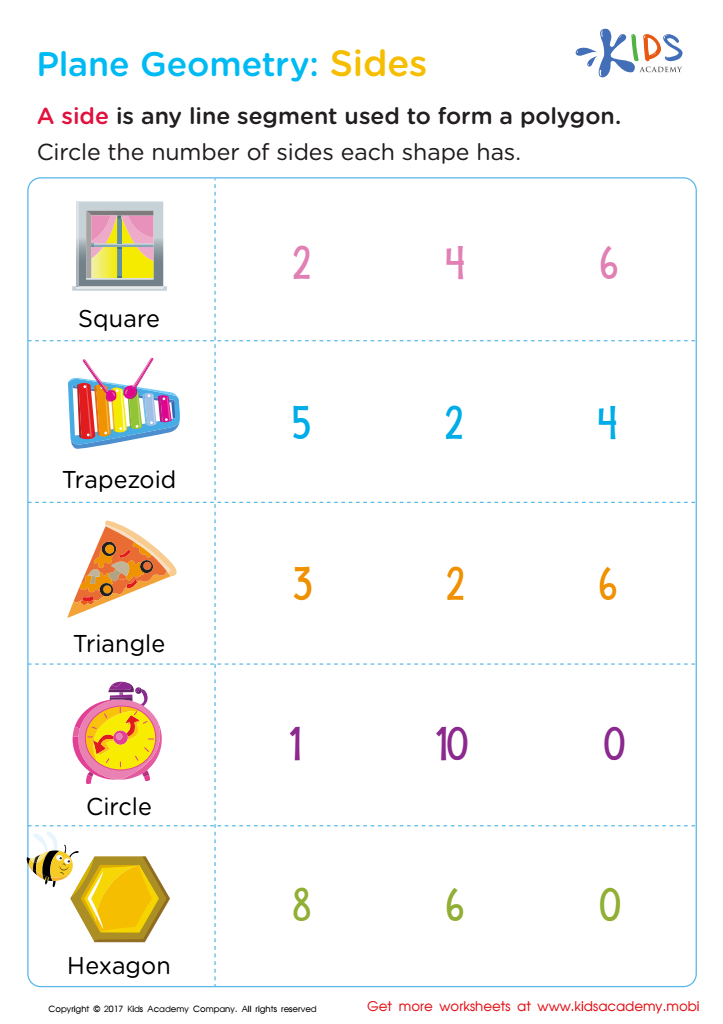Easy Geometry Worksheets for Ages 6-8
53 filtered results
-
From - To
Discover our Easy Geometry Worksheets for ages 6-8, designed to make learning fun and engaging! These printable activities introduce young students to fundamental geometric concepts such as shapes, patterns, and measurements. Each worksheet is tailored to reinforce key skills, practicing identification, classification, and basic problem-solving. Crafted for early learners, our resources encourage creativity and boost confidence in mathematics while catering to various learning styles. Perfect for home or classroom use, these worksheets support comprehensive learning through interactive exercises. Provide your child with the foundational skills they need in geometry—explore our collection today and watch them shine in math!
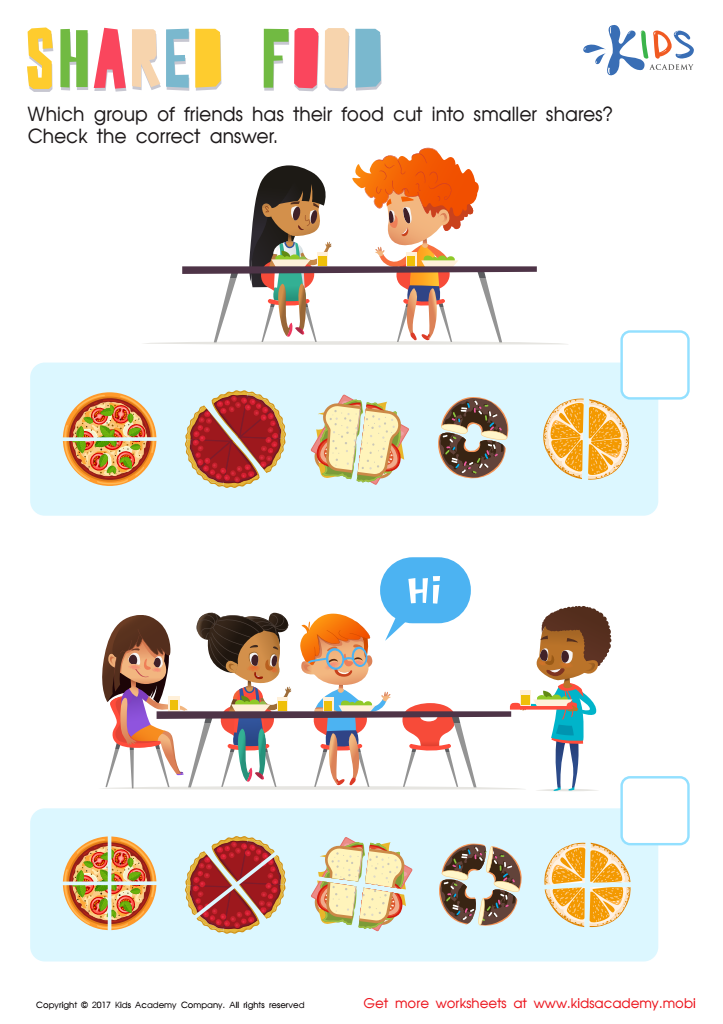

Shared Food Worksheet
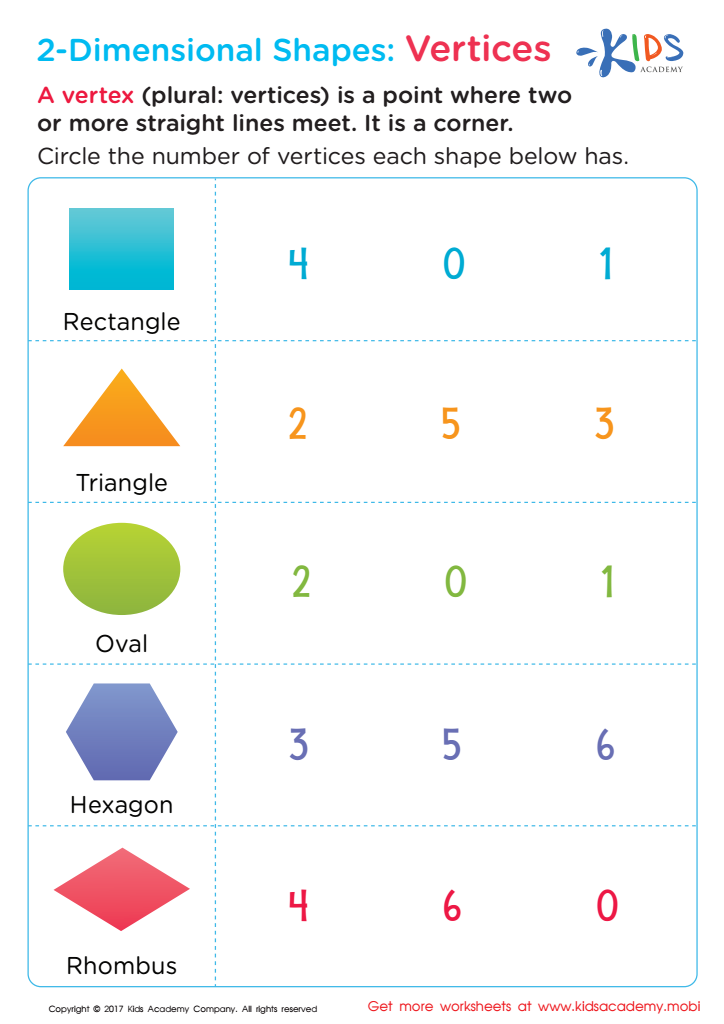

Two–Dimensional Shapes: Vertices Printable
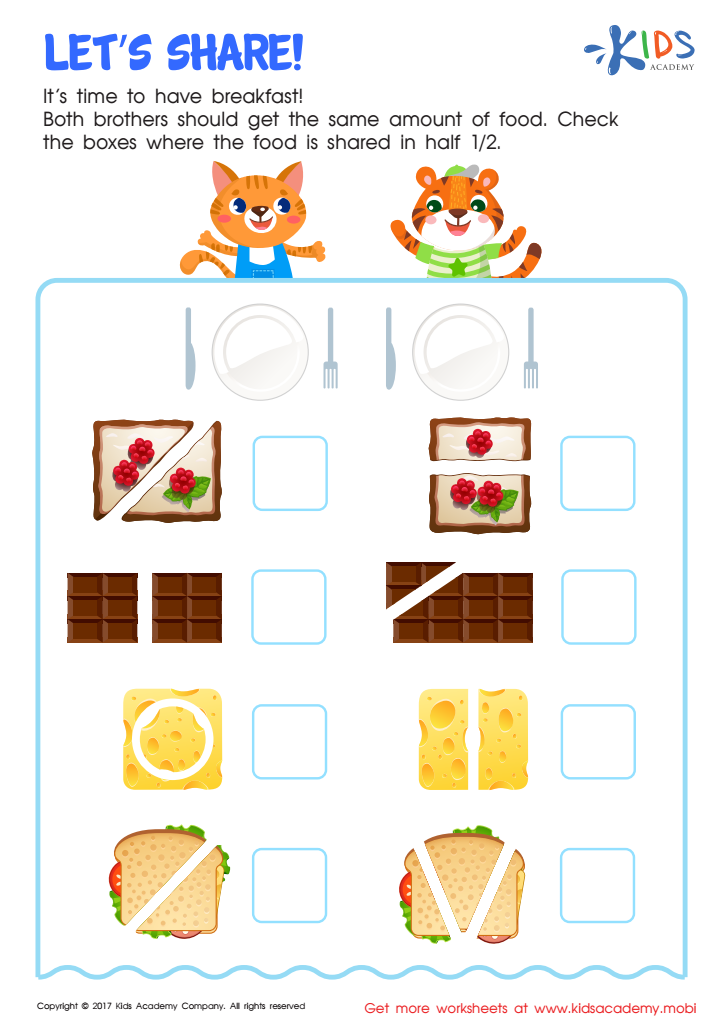

Let's Share Worksheet
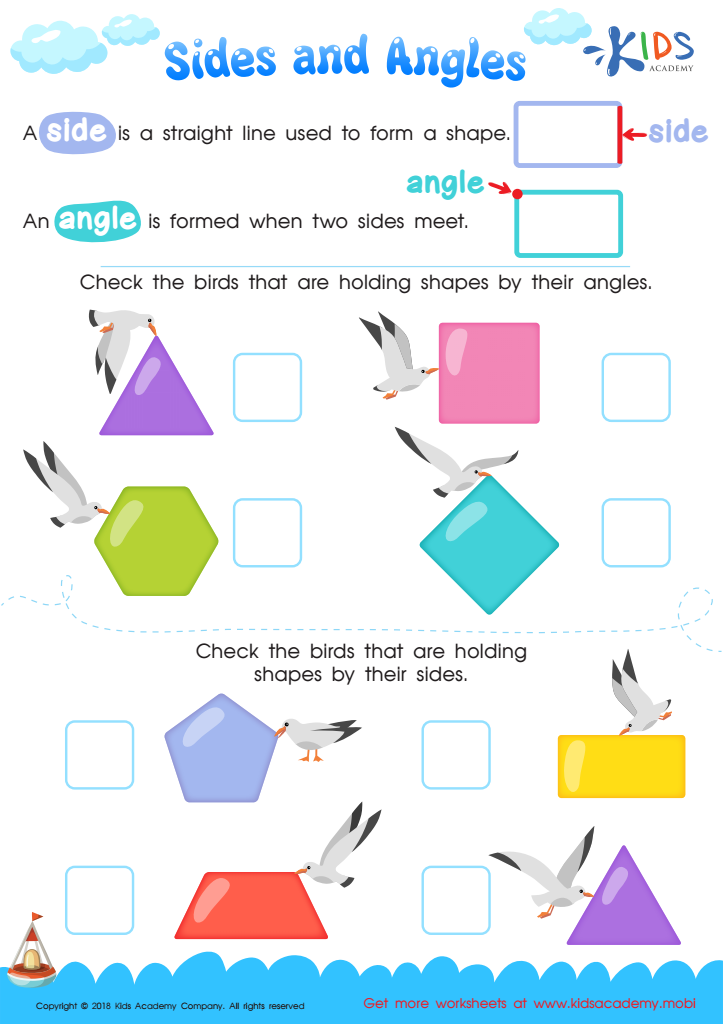

Sides and Angles Worksheet
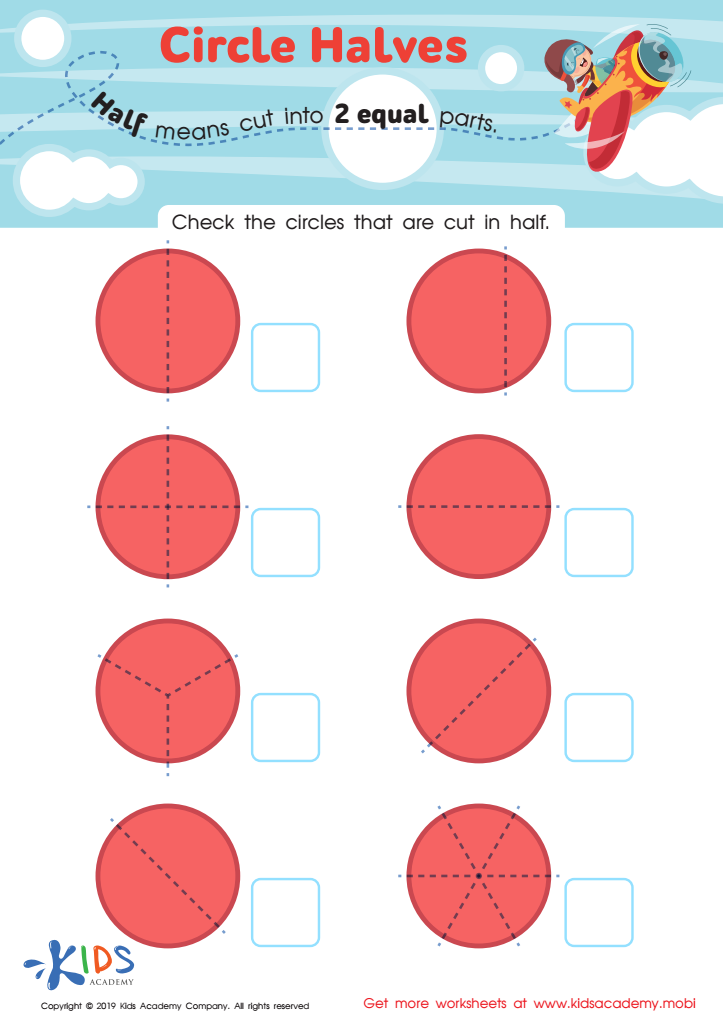

Circle Halves Worksheet
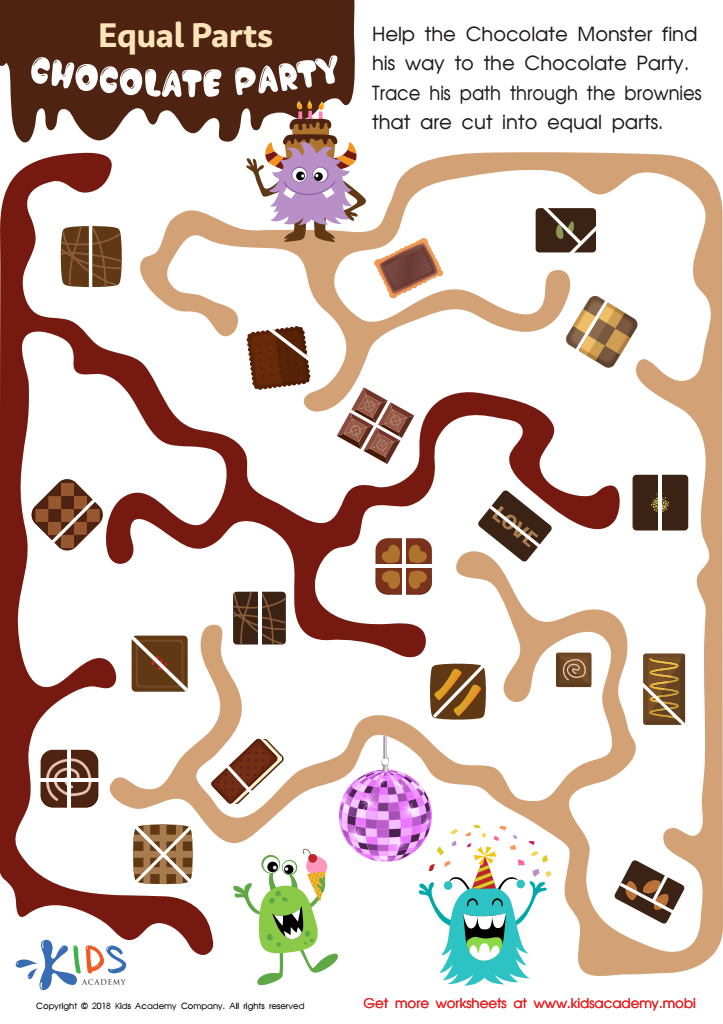

Equal Parts: Chocolate Party Worksheet
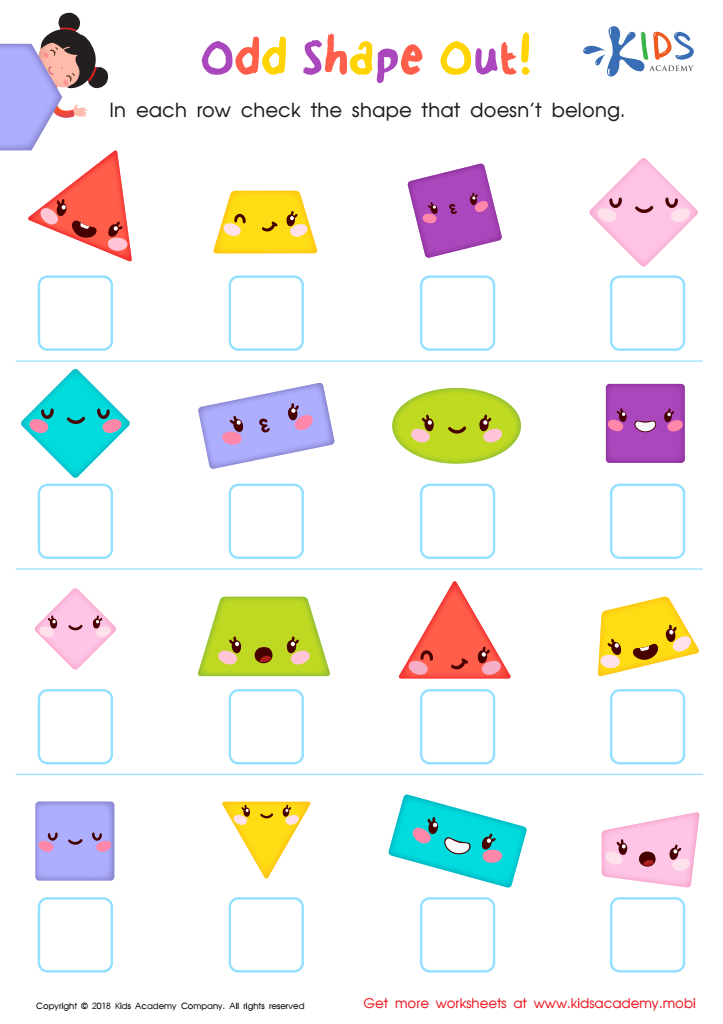

Odd Shape Out Worksheet for Grade 3
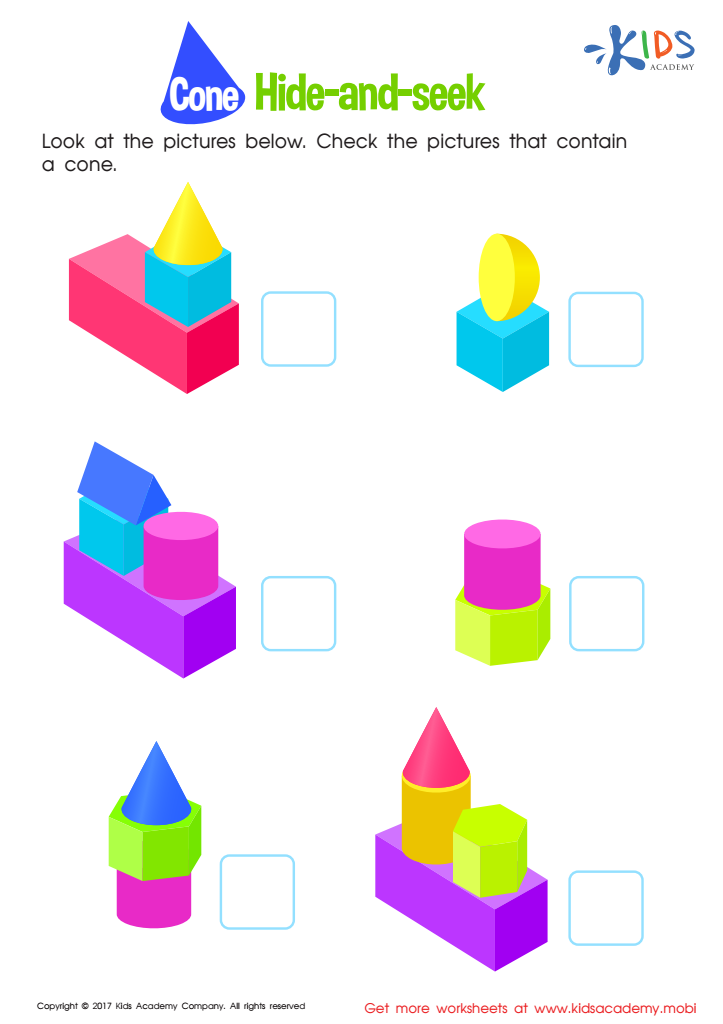

Cone Hide-and-Seek Worksheet
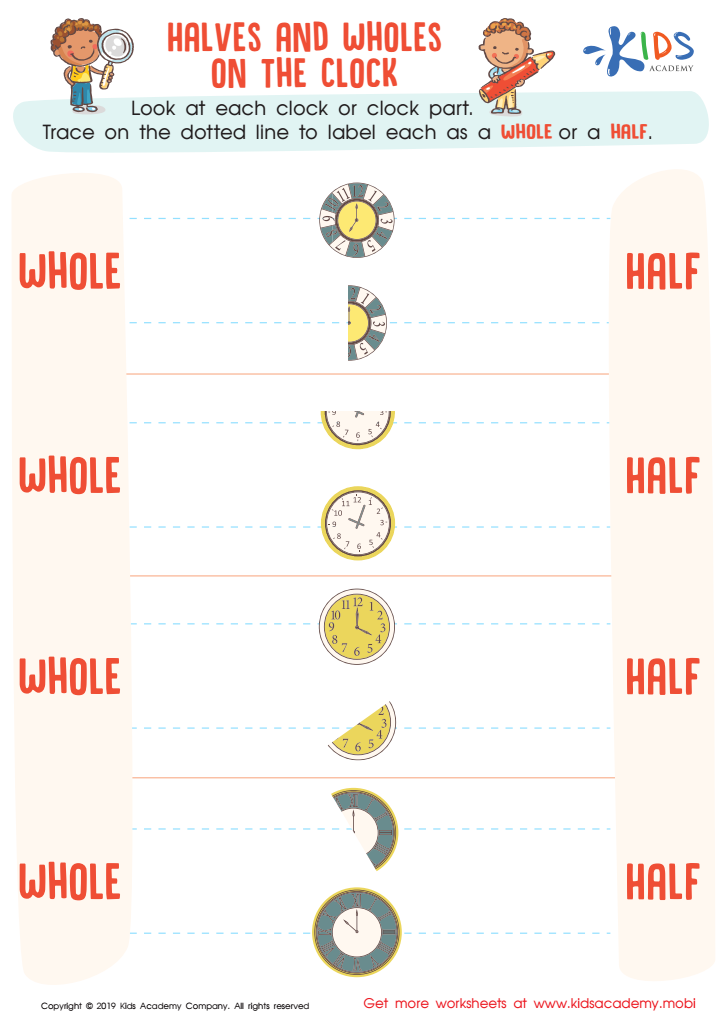

Halves and Wholes on the Clock Worksheet
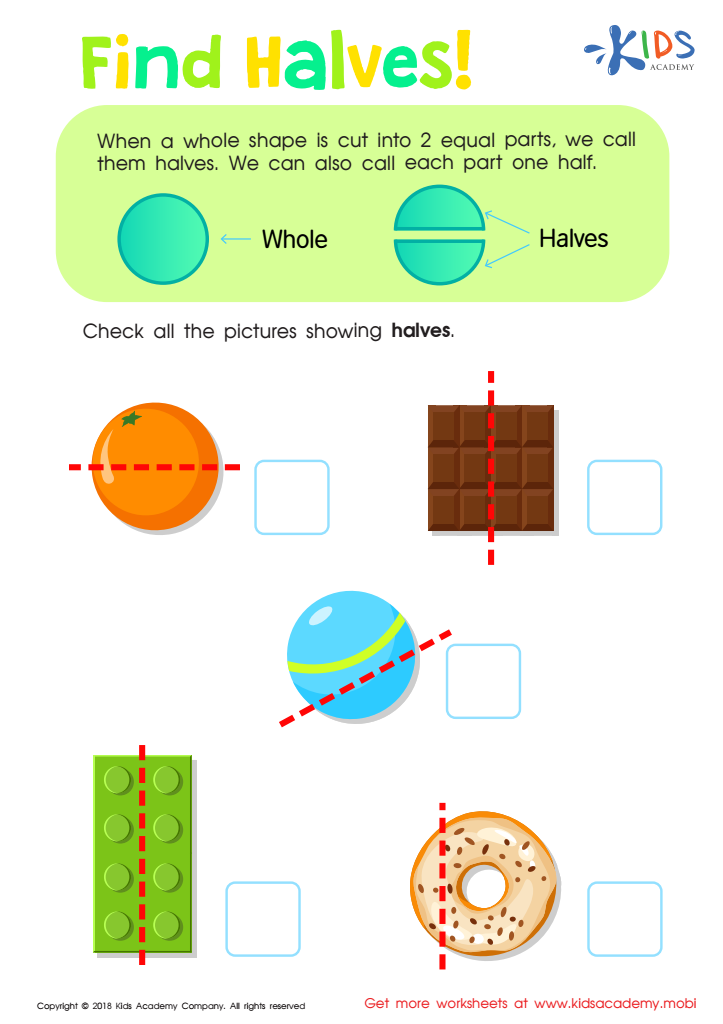

Find Halves Worksheet
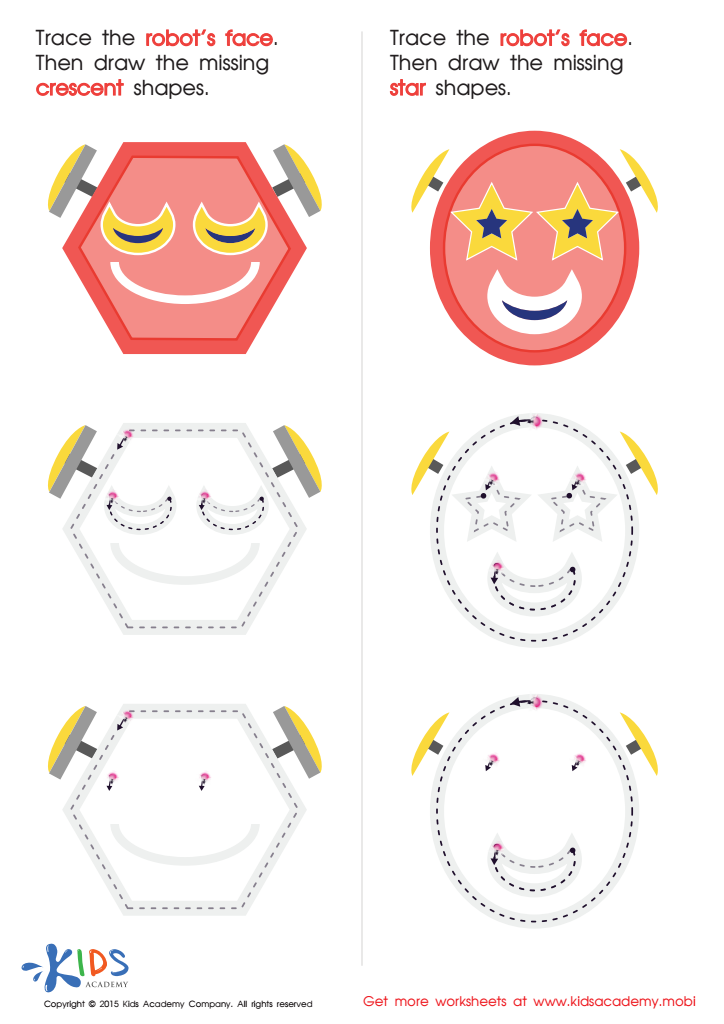

Composing a Robot's Face of Crescents And Stars Worksheet
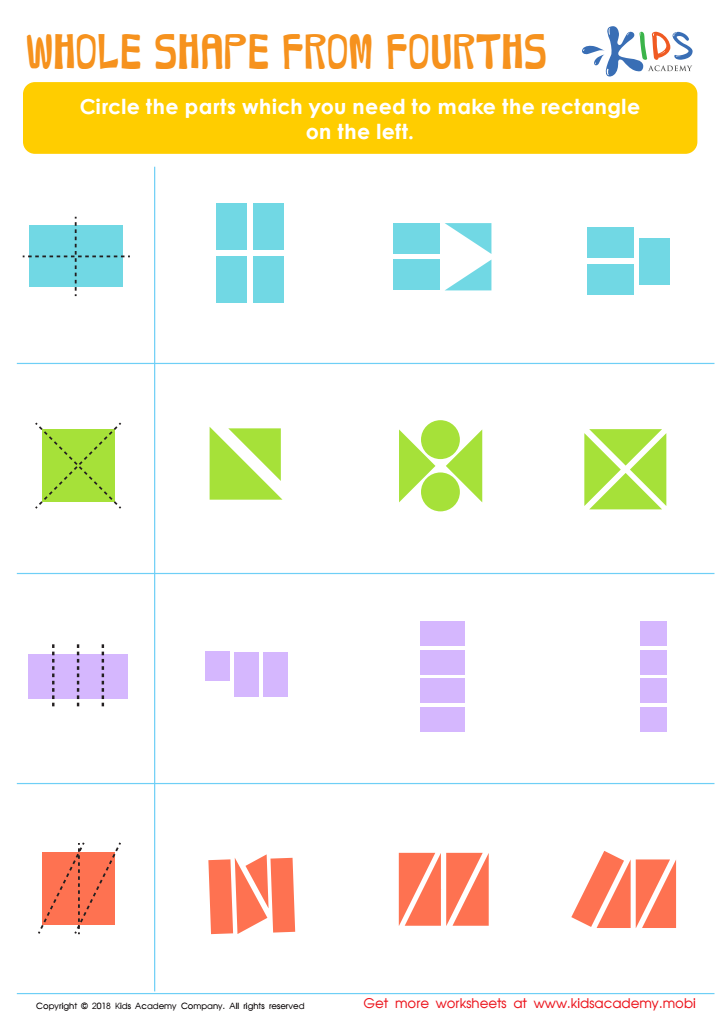

Whole Shape from Fourths Worksheet
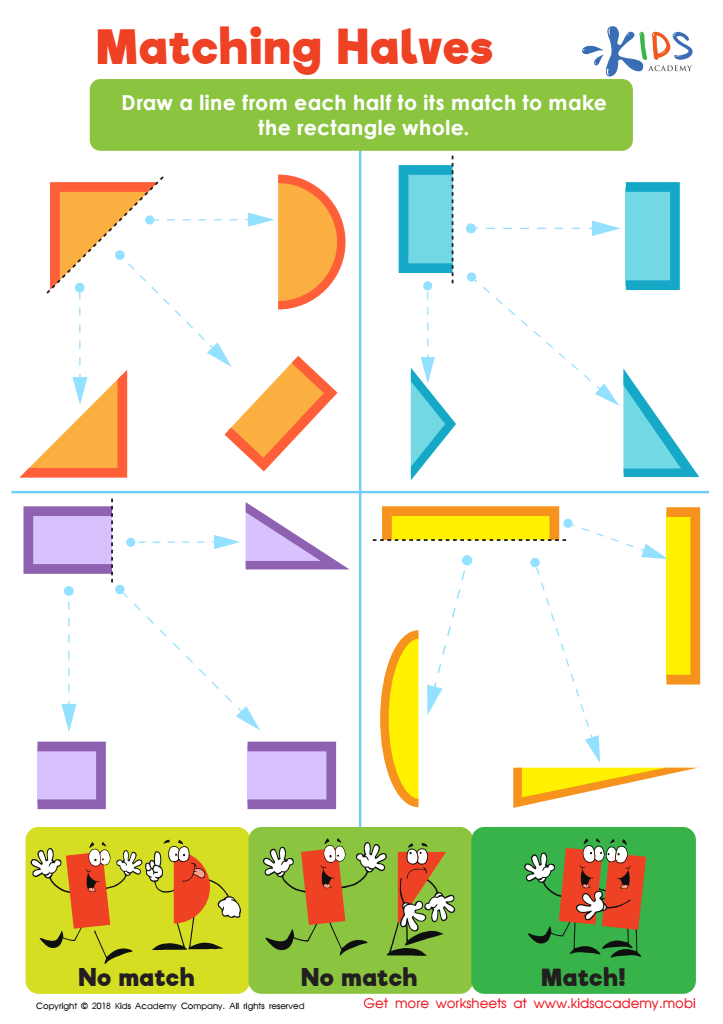

Matching Halves Worksheet
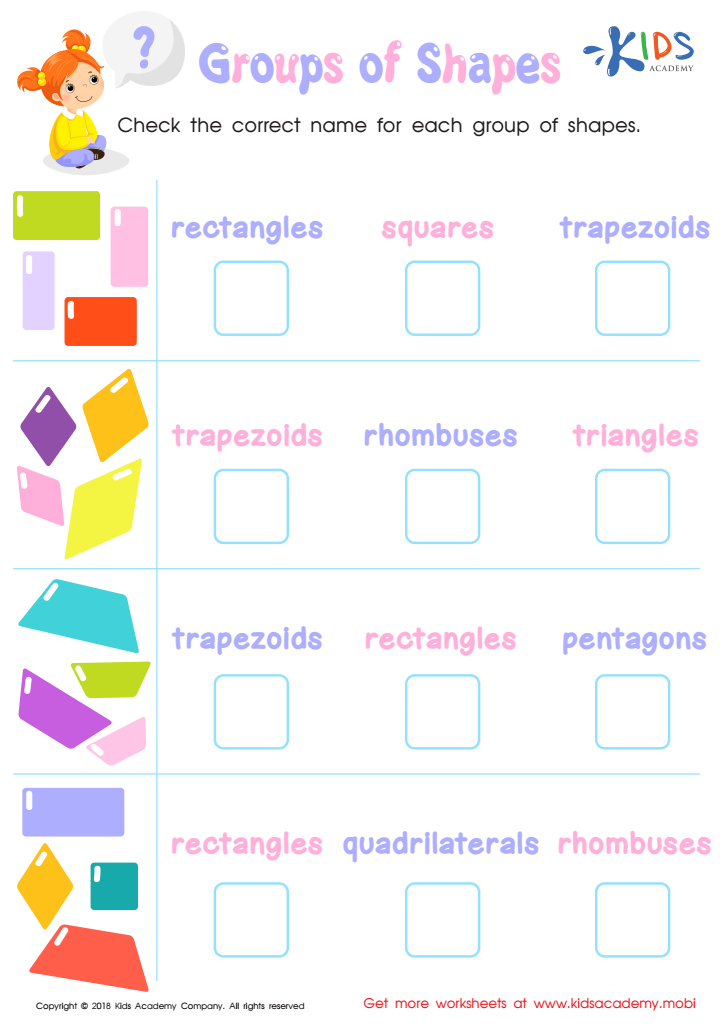

Groups of Shapes Worksheet


Faces of 3D Shapes Worksheet
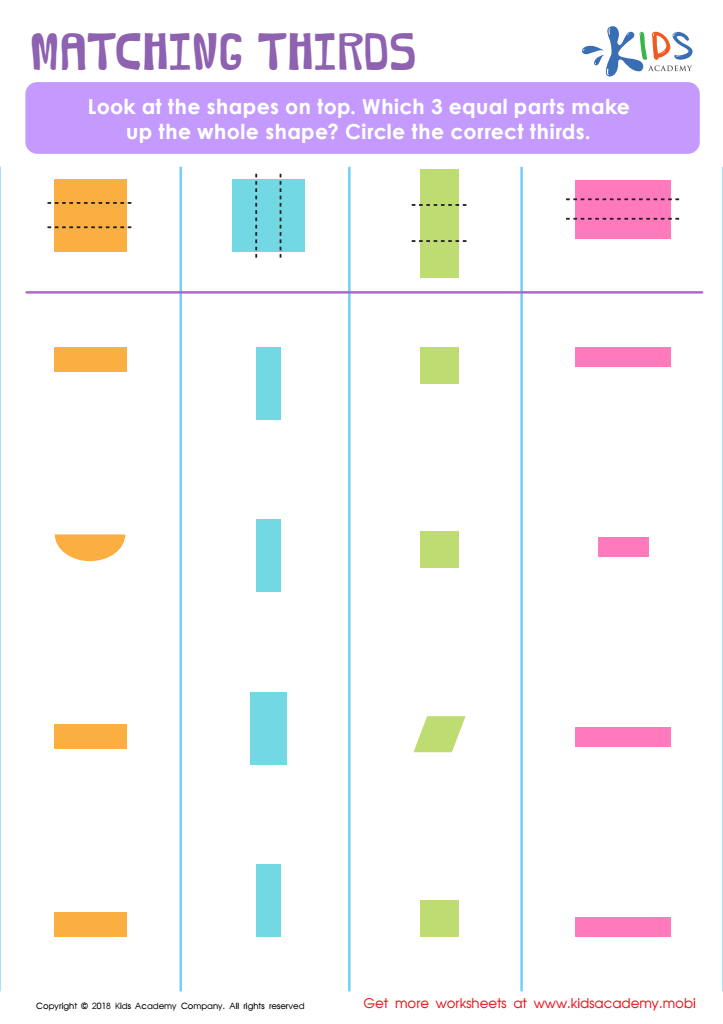

Matching Thirds Worksheet
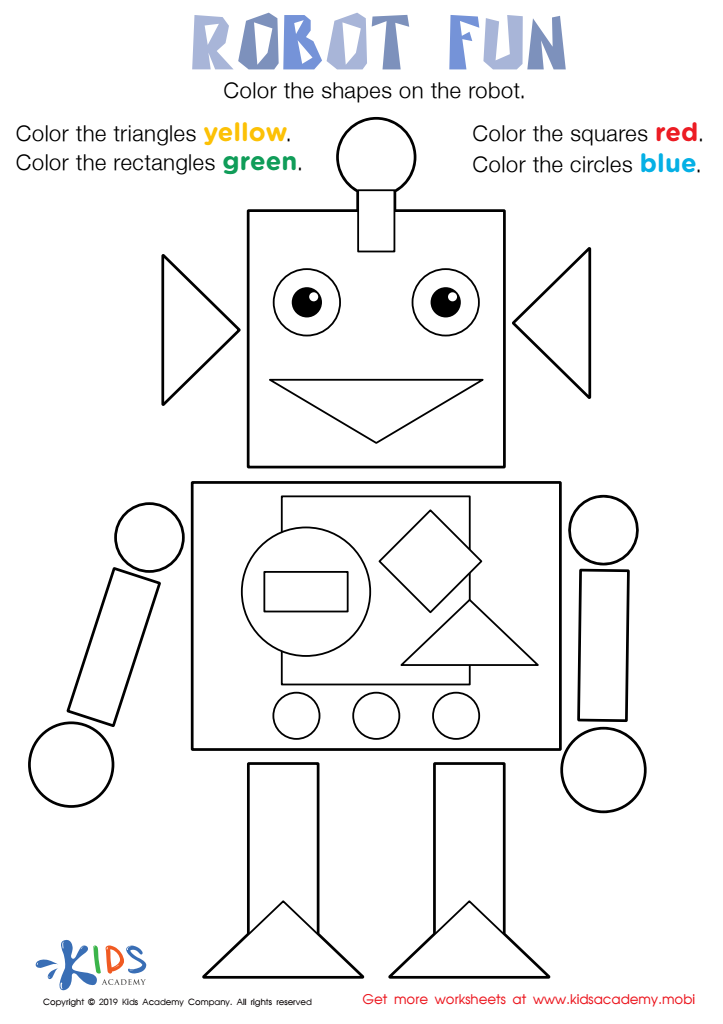

Robot Fun Worksheet
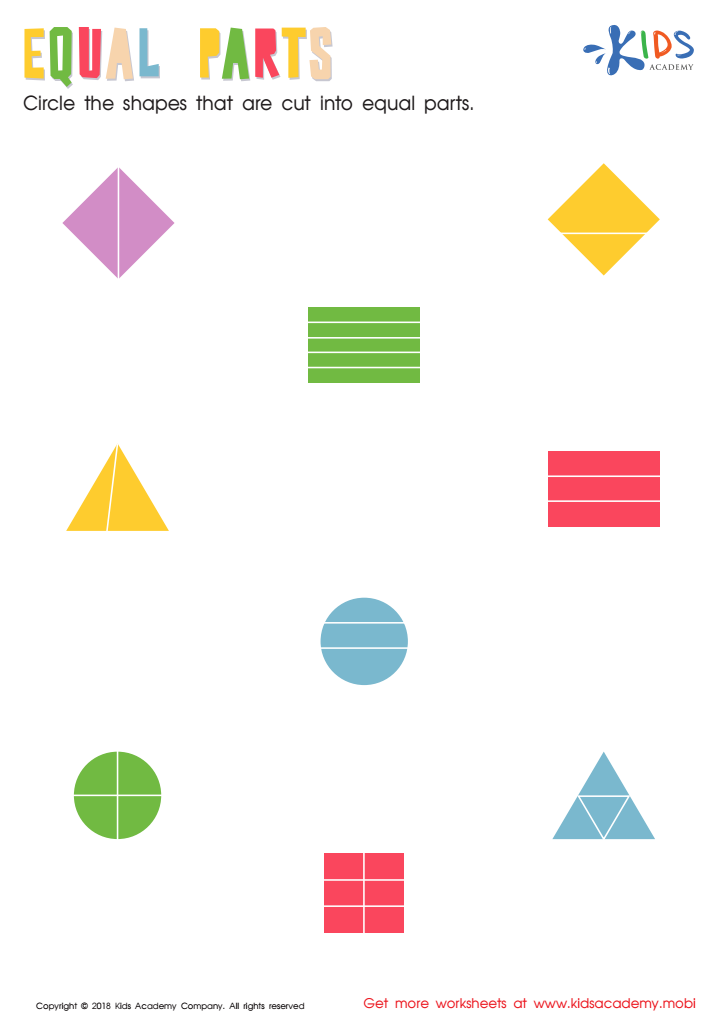

Equal Parts: Shapes Worksheet
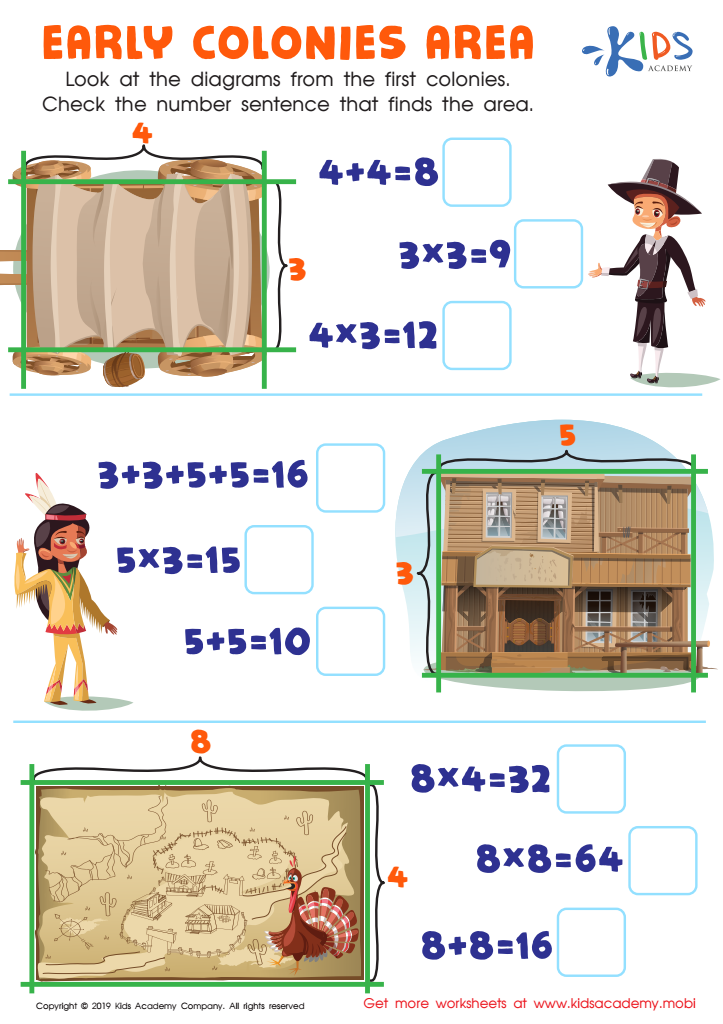

Early Colonies Area Worksheet
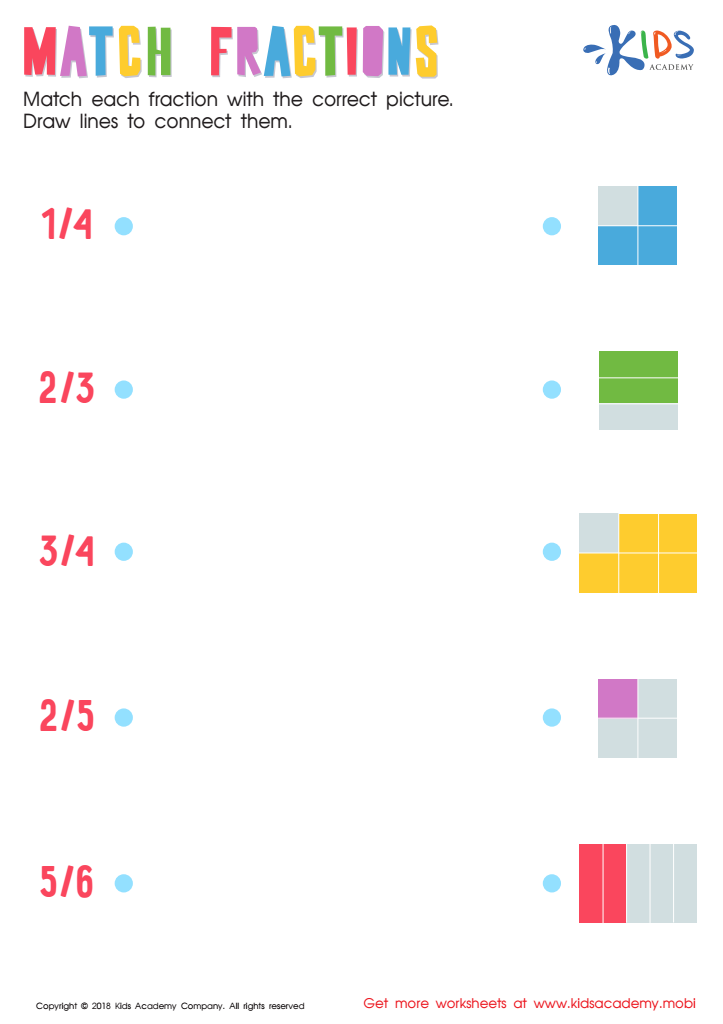

Match Fractions Worksheet
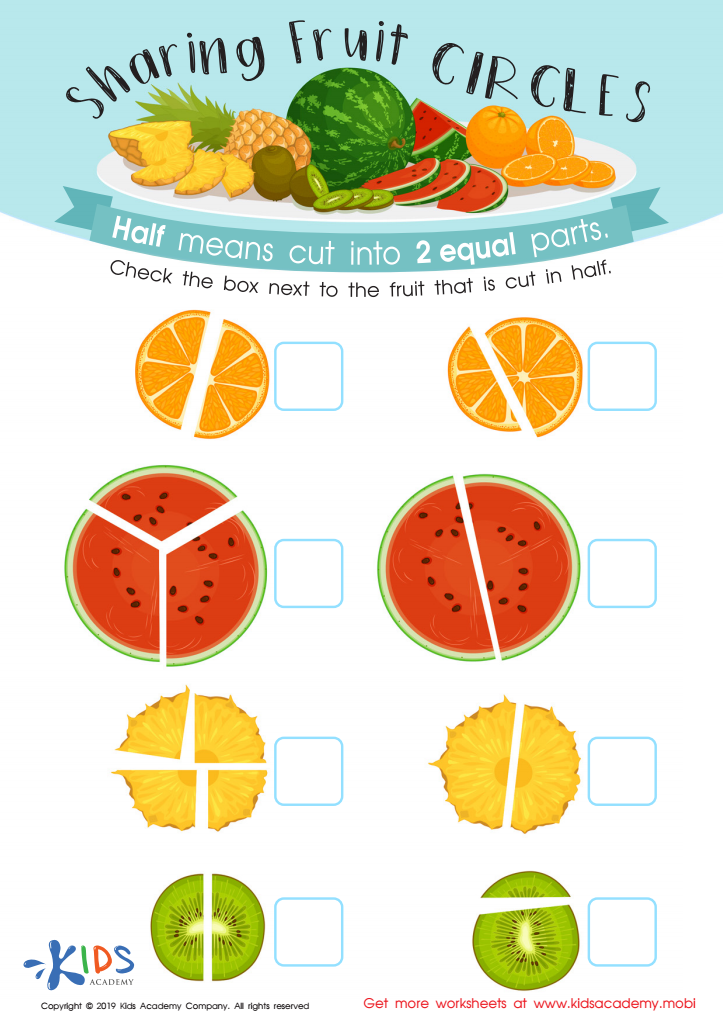

Sharing Fruit Circles Worksheet
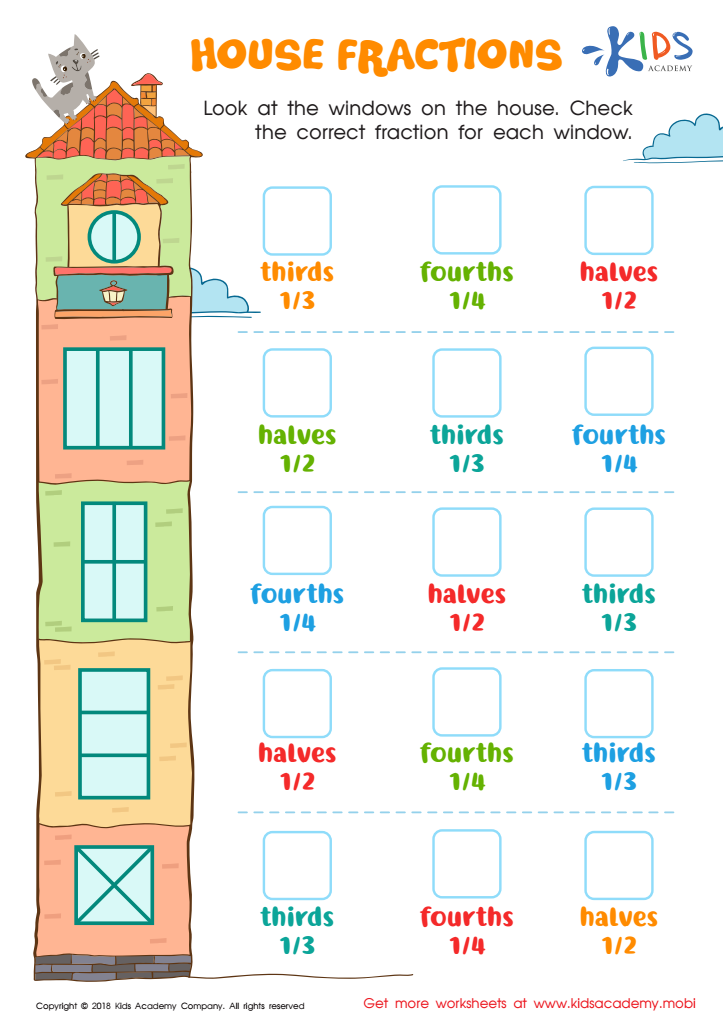

House Fractions Worksheet
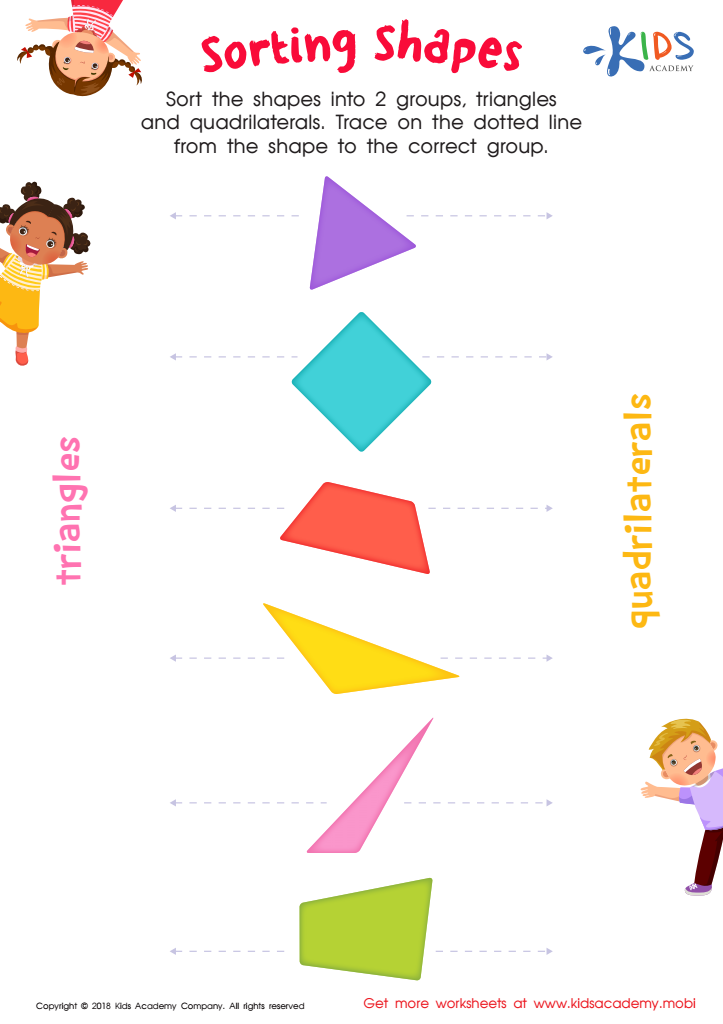

Sorting Shapes Worksheet
Easy Geometry for Ages 6-8 is a crucial program that parents and teachers should prioritize for several reasons. At this formative stage, children develop foundational skills that shape their understanding of mathematics. Engaging with geometry at an early age helps children recognize shapes, understand spatial relationships, and develop problem-solving abilities. These skills are not only vital for math but also foster critical thinking in everyday situations, such as navigating their environment or recognizing patterns.
Additionally, this curriculum incorporates hands-on activities that make learning enjoyable and interactive. When children are engaged, they are more likely to retain information and develop a positive attitude towards math, making it less intimidating for them in future grades. Moreover, geometry introduces concepts such as symmetry and measurement, which are applicable in art, science, and even financial literacy as they grow.
Furthermore, supporting early geometry education promotes confidence in children. When they achieve success in understanding complex concepts, they build a growth mindset that encourages them to tackle challenges. Parents and teachers play a vital role in this process, ensuring that young learners are well-prepared for future academic endeavors, thereby laying a strong foundation for lifelong learning and confidence in their mathematical abilities.
 Assign to My Students
Assign to My Students












